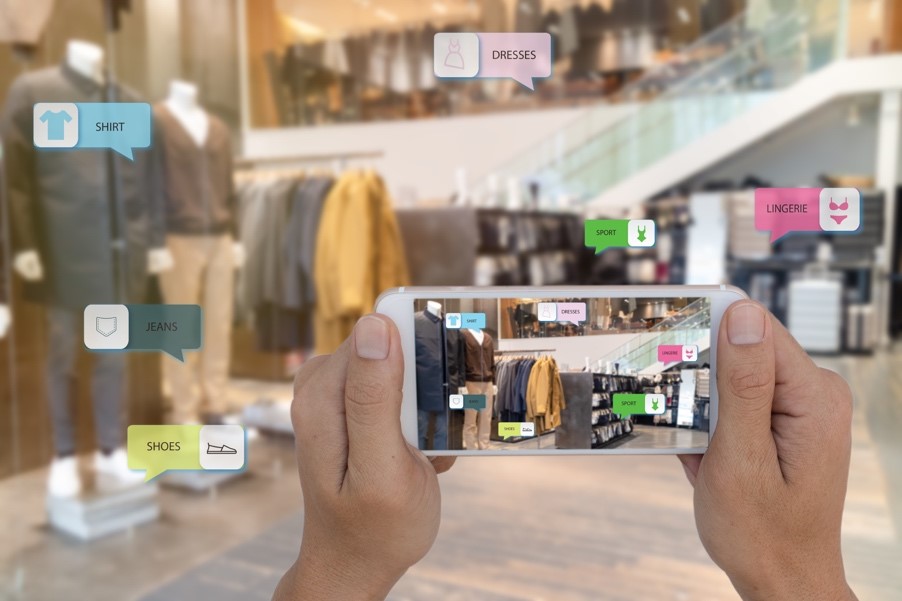Every day, artificial intelligence is making further inroads into the lives of consumers
Artificial intelligence (AI) affects all of our lives, especially when used to present media, products, and services to us. As the pervasiveness of AI continues to increase, the full range of its effects upon our culture is not easy to foresee. But one thing is: As we elect to transact more of our purchases online, AI and machine learning will continue to increase their influence on our buying behavior and the shopping choices we make.
Research by market data statistics portal Statista shows that more than 1.9 billion people worldwide will buy from eCommerce vendors in 2019. That number is expected to continue increasing by about 20% per year in the next few years.
Indeed, the demand for online shopping is not going anywhere but up, and companies have invested heavily in AI to reach savvy online consumers more effectively. The projected numbers indicate that the application of AI in the pursuit of online shopping revenue is only going to increase.
Here are five ways eCommerce companies are using or planning to use AI to change the way they reach consumers and close more sales.
1. Retargeting for retail
As a user, retargeting ads can be the most annoying. You see an article for a new product. You click on an advertisement for it on Facebook or leave it in a shopping cart on Amazon. Suddenly you’ll be seeing ads for it all over the place: on your favorite news sites, your Reddit and Twitter feed, and your email inbox, to name a few.
Soon security cameras at retailers like Target, Walmart, and Home Depot will be using advanced face-recognition AI to retarget customers who check out products in-store but put them back on the shelves. Don’t be surprised if you start seeing ads for the 55-inch TV you perused at Walmart right the middle of your next online browsing session.
2. Vanquishing the scourge of the fake online review
As a shopper in this online world, you have direct experience with the oversaturation of advertising online. As a result, many of you probably turn to online reviews when making purchasing decisions. Then again, what if these reviews are fake? AI is being used to manage this problem.
The issue has been a massive one for online retailer Amazon. The company has created a system to combat the prevalence of fake negative reviews (a practice known as astroturfing) with a system that learns to identify fake reviews in their system that do not correlate with verifiable purchases. Their AI system also boosts the prominence of verified customer reviews and those marked by users as “useful,” and it gives added weight to more recent reviews on the site.
3. Bringing the premium “personal shopper” experience online
ECommerce companies competing with the likes of Amazon and Walmart have a tall order when trying to provide a more “premium” shopping experience online that offers consumers a useful service and gives the company a quantifiable competitive advantage. Flipkart, an Indian-based eCommerce company, experimented with technology to emulate human-like interactions with consumers to find smarter sales approaches and aid product discovery. Macy’s has also tested a similar IBM Watson-based system in stores called “Macy’s on Call.” The results of these efforts have been decidedly mixed, but the search continues for ways AI can provide a more personable, value-added shopping experience.
4. Thank Alexa for the rise of voice search
Though competitors such as Siri continue to make steady progress, Alexa bypassed all of them by mastering one of the simplest of voice search interactions: “Alexa, can you order me _________________?” By having Alexa’s voice AI perfect the mechanics and permutations of that simple exchange, Amazon successfully positioned Alexa as the most dependable virtual assistant. Alexa technology is now used to access Amazon’s online store on desktop and mobile platforms and on the company’s own connected devices, along with other products such as Anker’s line of Alexa-enabled in-car power adapters. Alexa is omnipresent, gathering data and becoming a better voice-recognition platform at an exponential rate.
5. AI + location-aware mobile devices = the internet knows you’re car shopping
So, every time you go to the mall, you stop in at the Tesla showroom. You can’t help yourself. You want a Model 3s with the 17-inch display and the whisper-silent drive. But increasingly, you’re getting ads on your web browsers and social feeds from the local Chevrolet dealer. It seems they want you to test-drive a new all-electric Bolt.
Yes, the Chevy dealer knows you’re shopping (or drooling, anyway) over another electric car. How? Well, if you’ve also spent time loitering on the Tesla website, there you go.
But, let’s say you haven’t. How are they finding you? Have you tagged yourself on social media at the Tesla showroom? More than one, perhaps? Or maybe the Chevy dealer had a geofence in place around the local Tesla dealership to recognize anyone who has visited?
The dealer could have come up with a formula that targets, for example, individuals who visit a Tesla showroom three times within six weeks without registering a Tesla under their name, thinking they could be a prime prospect for the more affordably priced Bolt. (Maybe they’re right. You could well be an excellent Chevy Bolt prospect.)
Let CloudHesive help you use the power of AI more effectively
CloudHesive can help your business harness the power of Amazon Web Services’ (AWS) AI capabilities to ramp up your eCommerce efforts, increase ROI, and reduce your number of abandoned carts. Learn more by getting in touch with CloudHesive at 800-860-2040 or through our online contact form.



